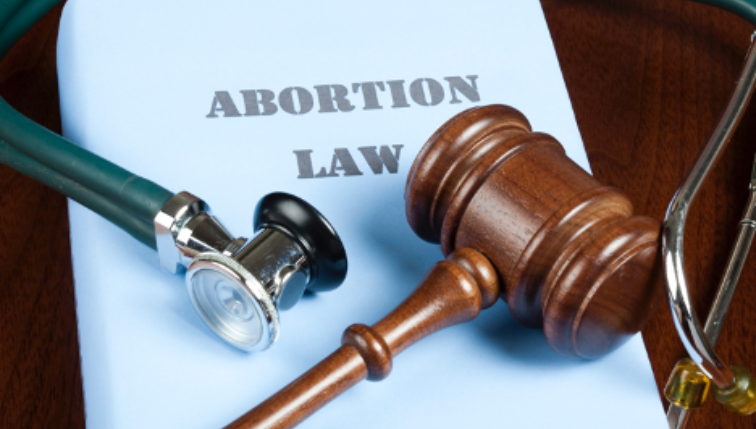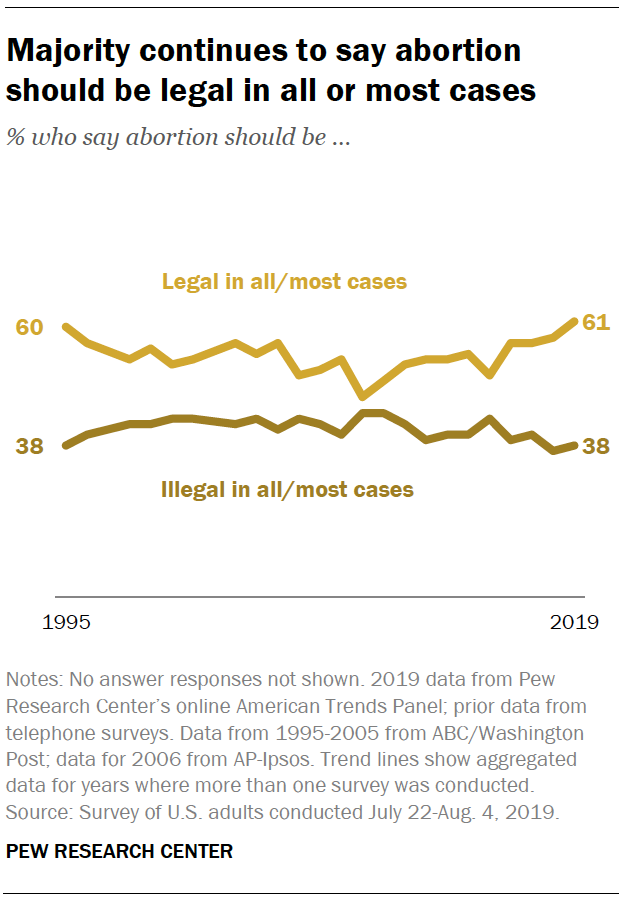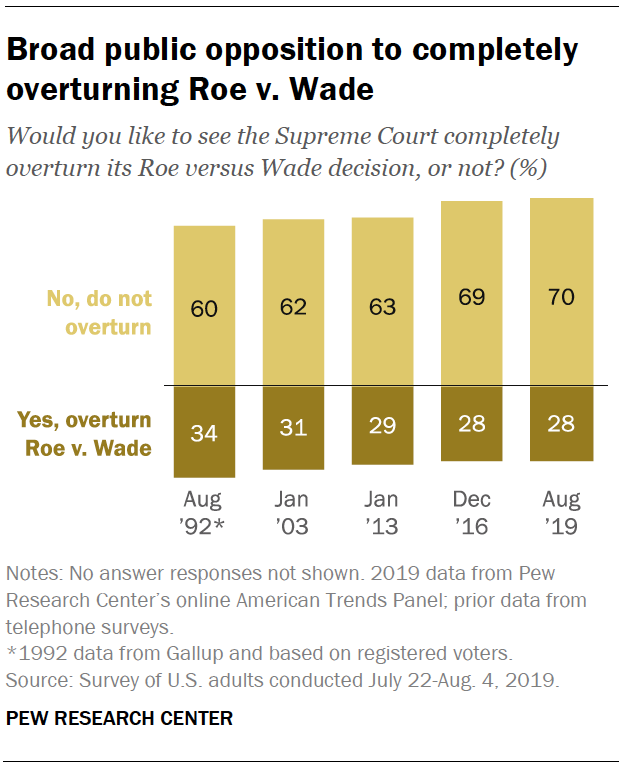Go straight to The Bottom Line

The question of abortion – whether and to what extent it should be permitted or prohibited in our country – has become one of the most ideologically divisive issues in American society today. Although an August 2020 Pew Research Center Poll on Important Issues in the Election found that abortion ranked last among twelve issues that will be “very important factors” to registered voters in their decision how to vote, for certain Americans, abortion is the single litmus test issue that will determine which candidate to support.
Of course, as with most issues, the abortion question, fully considered, isn’t really as simple as “yes” or “no”. Roe v Wade, the Supreme Court ruling from 1973 that safeguards a women’s right to an abortion on a national level, only protects that right until viability, which until recently has been accepted as the point at which a fetus is able to live safely outside the womb, generally around the start of the third trimester. After that point, Roe provides that individual states can regulate abortions but should allow them if the life or health of the mother is at risk. Recently, abortion opponents have been seeking to press their case by redefining “viability” even to the point of claiming it happens when a heartbeat can be detected, by implementing very narrow tests with respect to what “health of the mother” actually means, and by trying to apply a range of other rules and restrictions to limit access to abortion.
What is Donald Trump’s Position on Abortion?
In a 1999 interview on NBC’s Meet the Press, Donald J. Trump declared that while he personally didn’t like abortions, “I am very pro-choice.” By 2012, however, his views had evolved, and by the 2016 campaign, Trump had fully converted and established himself as an opponent of abortion in nearly all cases, promising during the campaign to pick judges who would “automatically overturn Roe v Wade.” Since his election, Trump has barred federal family planning dollars from going to organizations that, among other healthcare services, provide abortions or refer patients to abortion clinics, such as Planned Parenthood. He has also expanded this philosophy worldwide, reinstating and expanding the Mexico City Policy, which prevents any U.S. government global health funds from going to foreign groups that provide or even provide information about abortions. As the first sitting President to ever speak live at the March for Life, last January Trump emphasized the importance of his record appointing federal judges – and Supreme Court Justices – who “apply the Constitution as written,” and declared that “unborn children have never had a stronger defender in the White House.” In the wake of the death of Supreme Court Justice Ruth Bader Ginsberg, Trump has the opportunity to tilt the Court towards a Conservative ideology in an unprecedented way, if the Senate Republicans succeed in their unprecedented sprint to approve his nominee, Amy Coney Barrett, with scarcely more than a month to go before the election.
What is Joe Biden’s Position?
Joe Biden’s position on abortion has also evolved over time. A life-long Roman Catholic, in the 1980s Biden was quoted as saying Roe v Wade “went too far.” During his Senate career, Biden did vote for a number of measures that would have expanded limits on abortion, attributing those votes, when pressed, to “being a victim, or a product, however you want to phrase it, of my background.” However, Biden has now settled on a view that the protections enshrined in Roe v Wade should be safeguarded forever through legislative action. Biden has pledged to eliminate restrictions and restore funding for family planning organizations such as Planned Parenthood, and in fact to press for rescinding the Hyde Amendment, a regulation originally passed (with his support) in 1976 that blocks federal funds – primarily Medicaid – from being used for abortions except in cases of rape, incest or the life/health of the mother, effectively limiting abortion access for low income women. He has also pledged to rescind the “global gag rule,” i.e., the Mexico City Policy.
Where Do Americans Land on this question?
According to a Pew Research Center poll conducted in August of 2019, a majority of Americans – 61% — believe that abortion should be legal in all (27%) or most (34%) cases. A smaller share of the public – 38% — believe it should be illegal in all (12%) or most (26%) cases. These levels are generally the same as they were in 1995. It is notable that on both sides of the question, the “most cases” category attracts greater support than “all cases,” indicating that a well-considered, moderate approach to regulating abortion might find broad favor.

The fact is that only 12% of respondents feel that abortion should be banned in all cases, meaning that 88% see some place for it. The poll also finds that seven in ten Americans do not believe Roe v Wade should be completely overturned. This gap is in fact widening; in five polls taken since 1992, support for retaining Roe v Wade protections in some form has been consistently growing, while the percentage of those who would like to see Roe overturned has been shrinking.

The Bottom Line
However he came to his position, Donald J. Trump is very clearly seeking the votes of those who are strongly pro-life and anti-abortion, and if elected, he can be counted on to continue to limit any federal funding for abortions as an element of healthcare, and through his Supreme Court nominations to facilitate the overturning of Roe v Wade, enabling conservative-leaning states to implement extreme abortion restrictions or to ban abortions altogether. If repealing Roe v Wade is the deciding issue for you, more important than the cumulative weight of other issues that might lead you to Biden, then your choice for Trump is clear.
Joe Biden appears to represent the majority opinion on this issue. He has clearly wrestled with his own beliefs over recent decades, but has settled on putting his own personal and religious beliefs aside and come down on the side of allowing – and enabling – the right of others to choose and act on their own beliefs. For the American public as a whole, Biden maintains, the protections established through Roe v Wade for nearly fifty years should be the law of the land, and the federal government should treat abortions, when timely and necessary or important from a woman’s perspective, as an element of comprehensive healthcare – along with the right for Americans on a personal basis to choose contraception, which is the best tool for making abortions unnecessary.
For undecided voters, whether you lean liberal or conservative, the fact that Joe Biden is very much a “Democratic moderate” on this issue may provide comfort that a vote for Biden is a vote for the preservation of a woman’s right to an abortion within a thoughtful, reasoned set of parameters and practices. A vote for Trump would place you in the small (12 percent) slice of the American public that believes abortion should be made illegal under all circumstances. It’s up to you.